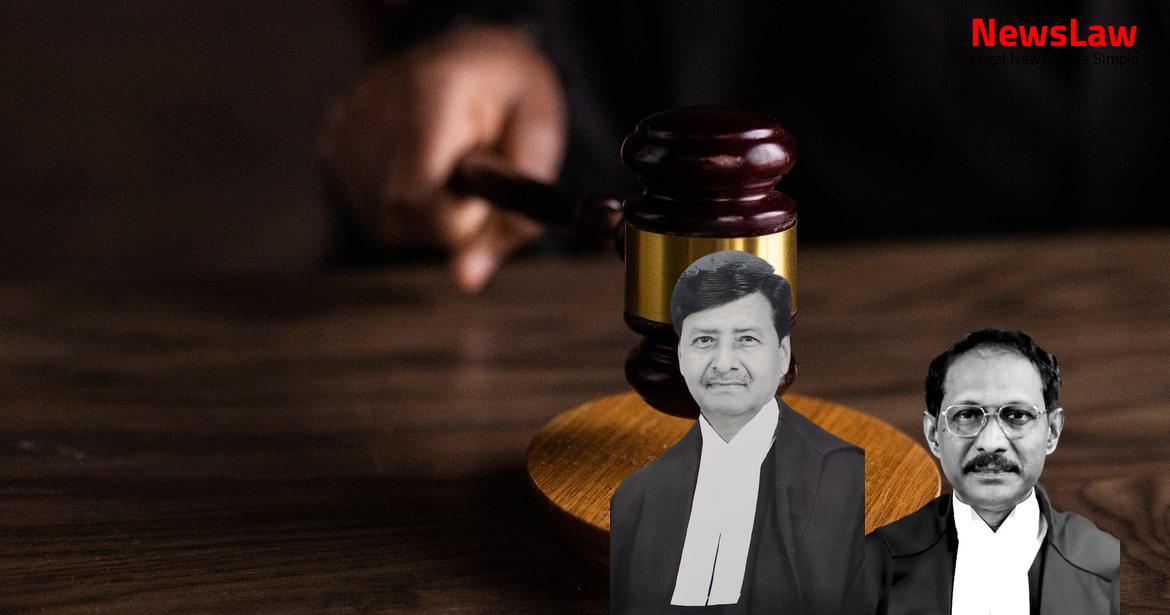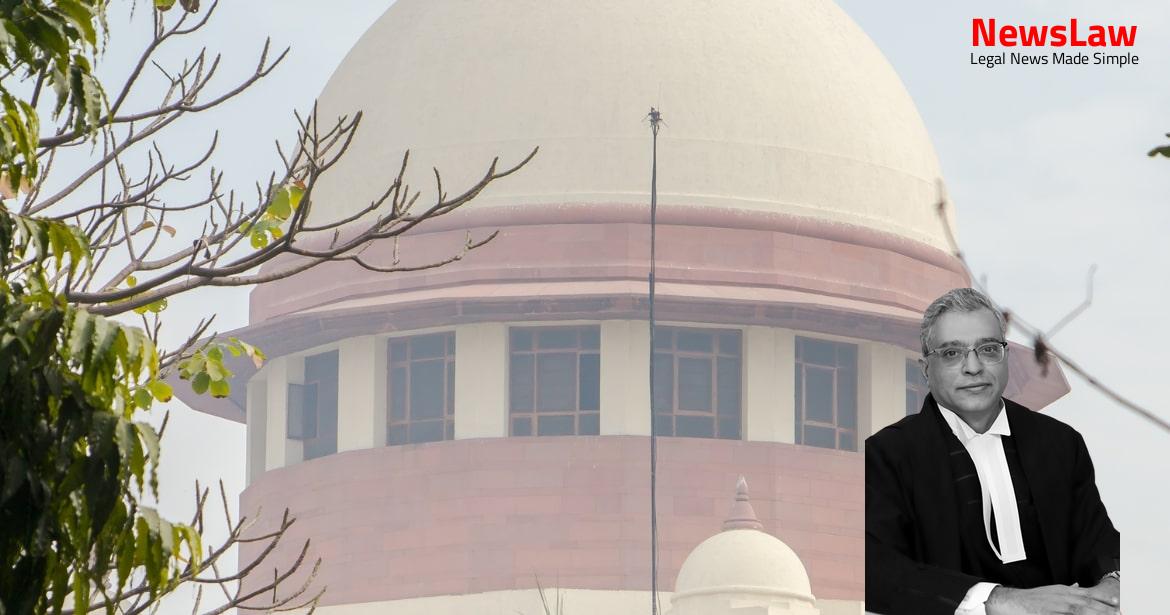In a recent NDPS case, the court’s legal analysis focused on the impact of the accused’s background on sentencing. The judgment highlighted the significance of considering factors such as age, illiteracy, and lack of awareness in determining the appropriate punishment under the law. This case sheds light on the nuanced approach courts take when balancing the severity of the offense with the personal circumstances of the accused.
Facts
- Appellant, a poor illiterate lady and senior citizen, along with her two children, charged under Section 20(b)(ii)(C) of the NDPS Act for possession of illegal ‘Ganja’.
- Charge-sheet filed implicating 5 accused persons including the present appellant.
- Accused persons denied circumstances against them, pleaded innocence and false implication.
- Appellant stated to be carrying on the trade of cannabis with her two sons and two other individuals.
- Failed to produce any document in relation to possession of cannabis.
- Trial Court framed charges against appellant and two others under NDPS Act, two others charged under Section 27-A.
- Search proceedings conducted with appellant’s consent, search Panchnama prepared.
- Police found ‘Ganja’ in appellant’s house packed in 20 sacks totaling 05 quintals, 21.5 kilograms.
- Samples taken from sacks for testing, original ‘Ganja’ labelled and seized.
- Co-accused charged under Section 27-A for facilitating trafficking of cannabis in appellant’s house.
- The appellant, an old illiterate lady from a rural background, was convicted under Section 20(b)(ii)(C) of the NDPS Act and sentenced to 15 years’ rigorous imprisonment and a fine of Rs. 1 lakh
- The trial court did not consider the appellant’s illiteracy, senior citizen status, and lack of criminal history before sentencing her
- The High Court upheld the conviction based on the recovery of the psychotropic substance from the appellant’s residence
- The other four co-accused were acquitted, and the appellant’s appeal was dismissed
- The procedure followed during the trial was not elaborated upon
- The prosecution’s case relied on a telephone call received by the police leading to the appellant’s arrest at her residence
Also Read: Admission Deadline Adherence in Medical Courses
Arguments
- Learned counsel for the appellant presented arguments in favor of leniency
- State counsel argued against leniency considering the nature of the offence
- Offence committed by the appellant proved beyond doubt
- Conviction upheld by the High Court under Section 20(b)(ii)(C) of the NDPS Act
Also Read: From Nominee to Disqualified: Supreme Court Scrutinizes Age Evidence, Declares Election Invalid
Analysis
- The factors to be considered for imposing higher than the minimum punishment under Section 32B of the NDPS Act were not adequately taken into account by the trial Judge and High Court.
- The offenses under the NDPS Act are extremely serious and harmful to society, warranting no leniency towards the accused involved in such crimes.
- The court considered the background facts of the accused, an old illiterate senior citizen from a rural background with no criminal record.
- The court noted that while upholding the conviction, the circumstances of the accused being unaware of the illegal activities due to her background were not considered during sentencing.
- Despite upholding the conviction, the court acknowledged the accused’s age, illiteracy, and lack of awareness of the situation.
Decision
- The accused appellant’s sentence has been reduced to 12 years’ rigorous imprisonment and a fine of Rs. 1 lakh.
- In default of paying the fine, the accused will undergo further rigorous imprisonment of six months.
- The appeal has been disposed of with the mentioned modifications.
- Any pending application(s) will be considered as disposed of.
Case Title: BUDHIYARIN BAI Vs. THE STATE OF CHHATTISGARH (2022 INSC 815)
Case Number: Crl.A. No.-001218-001218 / 2022



